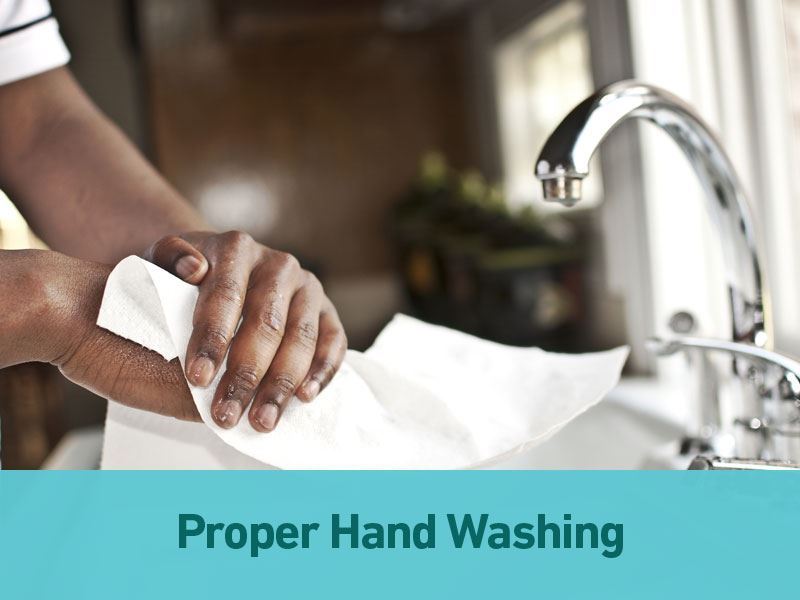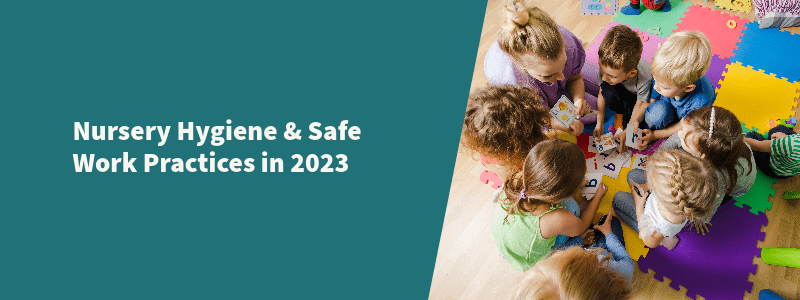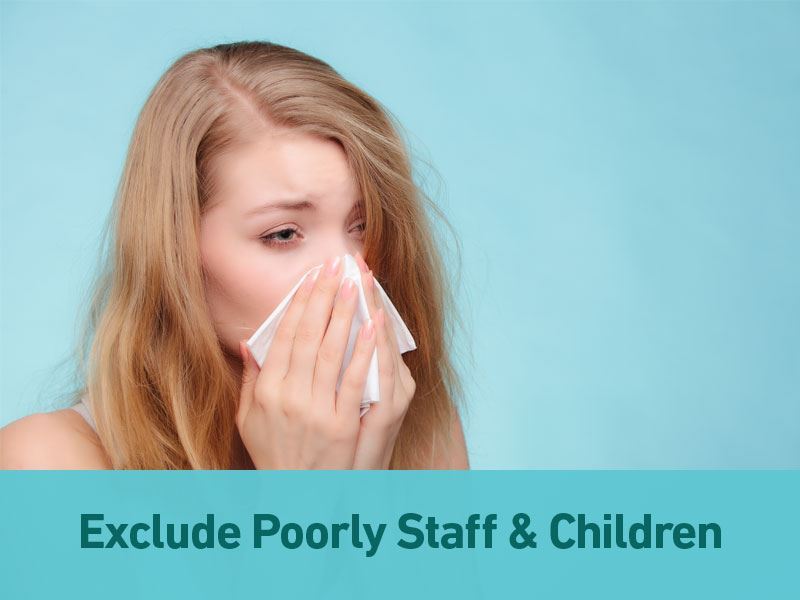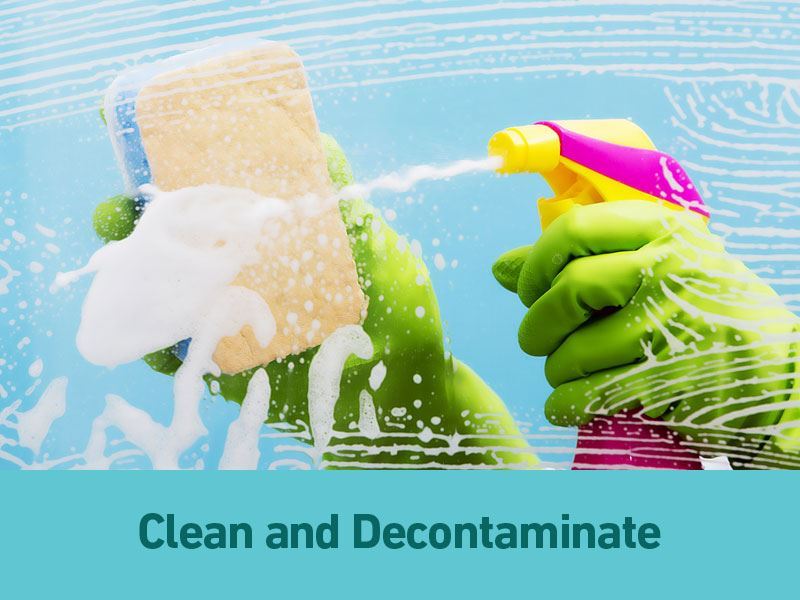The Importance of Hygiene
Correct and thorough hygiene practices are important in all walks of life, buy they become heightened when it comes to managing a nursery. Nurseries are highly susceptible to infections and illnesses, more so than at home, and the vulnerability of children means that nurseries need extra care.
Proper hygiene control affects everyone at a nursery, not just infants. Parents who want their children to be safe. Staff who wish the best for the children and want to stay healthy themselves. The children of course, and the childcare providers who have a moral and legal duty to safeguard children from infections and illnesses.
Another purpose of promoting good hygiene is to educate children on efficient hygiene practices. Whilst this may start in the home, it continues into the nursery and beyond.
Your Nursery
One of the first places you should start when it comes to ensuring your nursery is safe, clean and hygienic is the building itself:
- Ensure your building is completely pest proof
- Provide clean, functional and well-located hand wash basins with hot and cold water, soap and drying facilities
- Make sure there are disposal facilities on site and an appropriate waste storage space away from children
- Use easy-to-clean surfaces
- Put barriers in place to block off dangerous or unclean places (storage cupboards, kitchens, outside, etc.)
- Ensure you have a hygienic baby changer and sufficient washroom facilities
We’ve picked out a few of the most important things you can do to keep your nursery in tip-top shape when it comes to hygiene control. Check out each step below…
Always Promote Proper Hand Washing

Around 80% of all transferable diseases are spread by touching, so correct hand washing is something that all nurseries should teach, promote and enforce, both for staff and children.
You should provide enough hand washing facilities for everyone to use thoroughly, including:
- A suitable wash basin with hot and cold taps
- Soap
- Easy-to-use dispensers
- Hand towels
- Hand dryers
Fun Methods for Hygiene Control
Children can sometimes be reluctant to wash their hands. It’s a good idea to come up with poems or songs to go with the washing, either to narrate what should be done or to control the time it takes.
You could also use special soaps (like foaming soaps), novelty hand dryers, fun signage or anything else to make the washroom environment more enticing. A fun method is worth its while if it encourage children to keep their hands hygienic.
When Should Children/Staff Wash Their Hands?
- Upon arriving at the nursery
- After using the washroom
- After coming into contact with potentially contaminated surfaces
- Before and after serving or eating food
- After sneezing or blowing your nose
- After handling animals
- Before and after touching communal toys
- After touching soiled clothes
- After dealing with waste
- Before and after changing a nappy
- After coming into contact with any bodily fluids
- After being outside or around dirty/messy areas
- Before leaving the nursery at the end of the day
How Should Children/Staff Wash Their Hands?
- Wet your hands with warm running water
- Apply soap to your hands and thoroughly clean the palms, backs, between fingers, fingertips and wrists
- Run hands under warm water to remove all soap
- Dry hand using a paper towel or hand dryer
- Turn off taps without using hands, if possible (using your elbow or a paper towel)
Call Today for an Instant Washroom Services Quote
Exclude Ill Children/Staff Where Appropriate
It may sound harsh or unfair to exclude staff or children if they’re ill, but they can pose a genuine health risk to others (even if they don’t come into direct contact with other children throughout the day).
Staff who exhibit signs of illness should go home and not return until they recover. This is both for their own safety and the safety of anyone else in the nursery. There’s a wide range of infections that could spread even if staff just have a cough or sneeze. Chickenpox, Influenza, Measles, Meningitis and Tuberculosis are just some examples of what could transfer via ill staff or children.
If staff members or children come to the nursery with a wound or skin infections on an exposed part of their body, then they should leave until they have healed, or get clearance from their GP that it’s safe for them to be there.
Dealing with Poorly Children in Childcare
- Ill children should not attend nursery and stay at home
- A childcare operator/manager should inform the PHA of a child if they have are not at nursery because of an infection
- Parents and guardians should be aware if there are cases of infection in the nursery
- If a child requires antibiotics, it’s good practice to exclude them from the childcare setting until they have completed 48 hours of the treatment.

Ensure Your Nursery is Clean and Decontaminated
Maintaining a hygienic environment is essential for preventing and controlling the spread of infection. After all, a clean nursery is a healthy nursery.
Your nursery should have a cleaning schedule, which points out what should be cleaned, how often and who is in charge. Certain areas will need more frequent cleaning than others.
Proper detergent and disinfectant must be readily available to staff, but out of reach of children. Caution should also apply if children will be using items very shortly after being cleaned with chemicals.
Some Cleaning Tips
- Carpets and rugs, whilst not recommended for nurseries, should be vacuumed regularly and steam cleaned at periodic intervals
- High chairs and other furniture should be wiped down and cleaned
- Chairs near, or used during, food consumption should have regular cleaning carried out
- Floors and surfaces need mopping/wiping down to prevent a dust or grime build up
- Toilet areas should be cleaned at regular intervals to help prevent the spread of infections
- Kitchen or food prep areas should be cleaned before and after every meal, to prevent a germ build up, or cross-contamination between meals
- Children’s toys and play areas should be regularly cleaned, before and after play
- Touched areas, such as toilet handles, door handles, light switches and taps, need to have someone regularly wiping them to prevent the spread of germs
What to do Nursery Hygiene Equipment
- Use separate cleaning equipment for different areas – i.e. the kitchen, play area, reception, toilets, etc.
- Clean and disinfect all cleaning equipment at regular intervals or immediately after use
- If you use non-disposable cloths, machine wash them on a hot cycle at the end of every day
- Ensure you clean any mop heads or other cleaning utensils and replace them when they begin to appear worn or hold onto too much dirt
Safe Disposal of Waste in a Childcare Setting
Sensible Waste Management is critical in nurseries and is something that you can install and improve upon immediately. Safe waste disposal methods will help to ensure that your nursery is following all the correct legal processes whilst maintaining a healthy environment.
- Segregate your waste types into different bins (general waste, offensive waste, recycling waste, sharps and any other streams you have)
- Only fill your bag 3 quarters full to avoid tear out
- Keep your waste in wall mounted foot operated bins, out of the reach of children
- Wear protective clothing when handling waste, especially if it’s hazardous or contaminated
- Store your waste in a secure location and seal it off from the public or unauthorised personnel
- Ensure you use a licensed Waste Management company to transport your waste and check you have all the correct paperwork including Duty of Care and waste transfer notes
Click Here to Call for an Instant General Waste Quote
Nursery Hygiene Help From Direct365
If you are looking for a business to handle your clinical waste, look no further than Direct365. Working with service providers from across the country, we could save your nursery up to 30% on your clinical waste service. Fill in the form below for more information.





